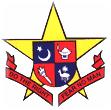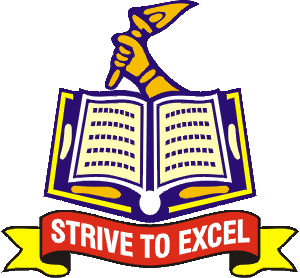
Education in Bangladesh is overseen by the country's Ministry of Education. The Ministry of Primary and Mass Education is responsible for implementing policy for primary education and state-funded schools at a local level. In Bangladesh, all citizens must undertake ten years of compulsory education which consists of five years at primary school level and five years at high school level. Primary and secondary education is financed by the state and free of charge in public schools.

The City School ni education company established in 1978, which operates English medium primary and secondary with over 160 schools in 49 cities across Pakistan along with joint venture projects in UAE, Saudi Arabia, Philippines and Malaysia. It is one of the largest private educational organisation in Pakistan, with a total of 150,000 students enrolled as of 2018. In 2018, The City School celebrated 40 years of service in the education industry of Pakistan.

Public education—from primary education through college—is open to every Saudi citizen. The second largest governmental spending in Saudi Arabia goes for education. Saudi Arabia spends 8.8% of its gross domestic product on education, which is nearly double the global average of 4.6%. Islamic studies are part of the education system alongside scientific and social studies that vary from educational institution to another.

The Sadiq Public School (SPS) is a college-preparatory boarding school located in Bahawalpur, Punjab, Pakistan. It also takes day pupils. It is one of the largest schools in Pakistan and its area of 451 acres (1.83 km2) makes it both the largest in the country and in continental Asia.

Bangladesh International School Dammam is an international school located in Dammam, Eastern Province, Saudi Arabia.
Ali Abbas al-Ahmed (Arabic: علي عباس آل أحمد, Gulf pronunciation:[ˈʢɑli ʢɐbˈbɑːs ʔɑːl ˈʔɑʜmɐd̪]; born 1966, is a Saudi analyst focusing on the politics of the Persian Gulf region: including terrorism, Islamic movements, Wahhabi Islam, Saudi political history, Saudi-American relations, and the history of the al-Saud family. He is the founder and director of the Institute for Gulf Affairs, an independent think tank in Washington, D.C. focused on providing analyses and disseminating information on political issues in the Persian Gulf region and particularly Saudi Arabia, and U.S.-Gulf relations. IGA also convenes conferences, conducts independent research and investigations, and works with the media and policymakers to foster a deeper understanding of Arab states of the Persian Gulf by providing them with up-to-date and exclusive information and connecting them with reliable analysts.
The International Indian School Jeddah, formerly known as the Embassy of India School, is an elementary and secondary school for the children of Indian nationals in Jeddah, Saudi Arabia, with boys and girls taught separately in English. It was founded in 1969. The School is part of global International Indian Schools including International Indian School, Riyadh
Air Force Golden Jubilee Institute, located at Subroto Park, Delhi Cantonment, India, is a school run by the Indian Air Force Educational and Cultural Society. It was founded in 1985.
Kehkashan Army Public School, Multan (KAPS) is a part of Army Public School and Colleges (APSACS). It is located in Fort Colony, Multan Cantt, Pakistan. KAPS was established in 1976. Although KAPS started with an old building of Army Mess, it was progressively improved and was upgraded. Now it has almost 70 classes and it comprises three wings i.e. Montessori wing, Junior Wing, High School Boys Wing and High School Girls wing.

International Indian School Dammam (IISD) is an English-medium K-12 Indian school in Saudi Arabia led by Mahenaz Farid. It is the largest school in the MENA region by number of students. Most of its 14000+ students come from in and around Ad-Dammam, Al-Khobar, Abqaiq, Al Qatif, Al-Hofuf, and Ras tanura. The School is part of Global International Indian Schools including International Indian School, Riyadh, International Indian School Jeddah.
The British International School of Jeddah is an international co-educational school established in 1977 in Jeddah, Saudi Arabia.

International Indian School Riyadh, formerly the Embassy of India School, Riyadh is a K–12 gender-isolated English-medium community-based foreign school in Riyadh, Saudi Arabia, run by the Indian embassy. Established in 1982 upon persuasion from then Indian prime minister Indira Gandhi, it was the first community-based institute in which was established to primarily serve the Indian diaspora in the country. It offers curriculum prescribed by the Central Board of Secondary Education and is approved by the Ministry of Education, Government of Saudi Arabia.
The Jubail International School, also known as Yandhi is a member of the Al-Hussan network of schools, including its sister school Al-Hussan Academy in Al-Khobar, Saudi Arabia. It opened in September 1999 and has KGI to grade 12 with students representing around 18 nationalities. The Saudi Arabia Ministry of Education, General Administration, approves the school for expatriate education. The language of instruction is English.
Saad National Schools (SNS) are based in Al-Khobar, in the Kingdom of Saudi Arabia. The school was established in 1995 and was inaugurated two years later under the patronage of HRH Prince Mohammad bin Fahd Bin Abdulaziz Al-Saud. The goal of the school is to help ensure that local children receive the best opportunities possible, in addition to an education that completely prepares them for the future. In 2000, a similar institution was established for girls, with the latter eventually achieving international accreditation.
Pakistanis in Saudi Arabia are either Pakistani people who live in Saudi Arabia even though having been born outside Saudi Arabia or are Saudi Arabian-born, but have Pakistani roots. By Pakistani roots, this could mean roots linking back to Pakistan or Pakistani diaspora or South Asia. Many Pakistani army officers and soldiers also serve in Saudi Arabia and train the Saudi military cadets. According to a 2020 estimate, 1.06 million Pakistanis live and work in Saudi Arabia as of 2020.
Salamat School System (SSS) is a group of elite private fee-paying academic institutions throughout Lahore, Punjab, Pakistan. SSS provides preschool education, primary education, secondary education and preparation for national and international General Certificate of Education (GCE) examinations. The group currently comprises:
Progress tests are longitudinal, feedback oriented educational assessment tools for the evaluation of development and sustainability of cognitive knowledge during a learning process. A progress test is a written knowledge exam that is usually administered to all students in the "A" program at the same time and at regular intervals throughout the entire academic program. The test samples the complete knowledge domain expected of new graduates upon completion of their courses, regardless of the year level of the student). The differences between students’ knowledge levels show in the test scores; the further a student has progressed in the curriculum the higher the scores. As a result, these resultant scores provide a longitudinal, repeated measures, curriculum-independent assessment of the objectives of the entire programme.

Quaid-E-Azam Divisional Public School and College is an educational institution for the boys and girls of Gujranwala Division of Punjab. It is located on G.T.road 1 km from Aziz cross inside Gujranwala, Punjab, Pakistan. It is a semi governmental institution. It is a public college with mainly two streams GCSE and GBISE up to O-Level, secondary and higher secondary levels.

Tanzeem ul Madaris or Tanzeem-ul-Madaris Ahl-e-Sunnat is a board of education working with over 15000 Sunni madrassas across Pakistan. It is a key seminary board in the country affiliated with the Barelvi movement within Sunni Islam. Grand Mufti Muneeb-ur-Rehman of Jamia Naeemia Lahore is the President of the board. The total strength of the students appeared in its examination was 600000 lac in 2013. Pakistan's Higher Education Commission recognizes the degrees awarded by madrassas affiliated to Tanzeem ul Madaris.









